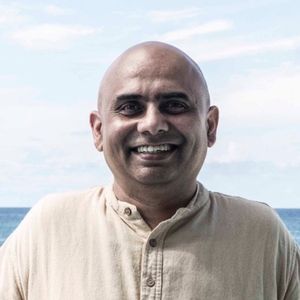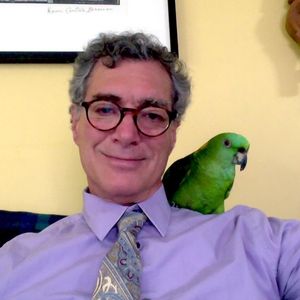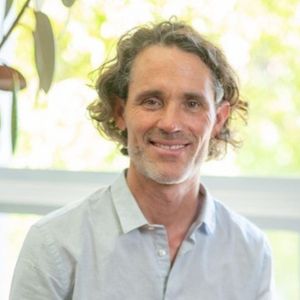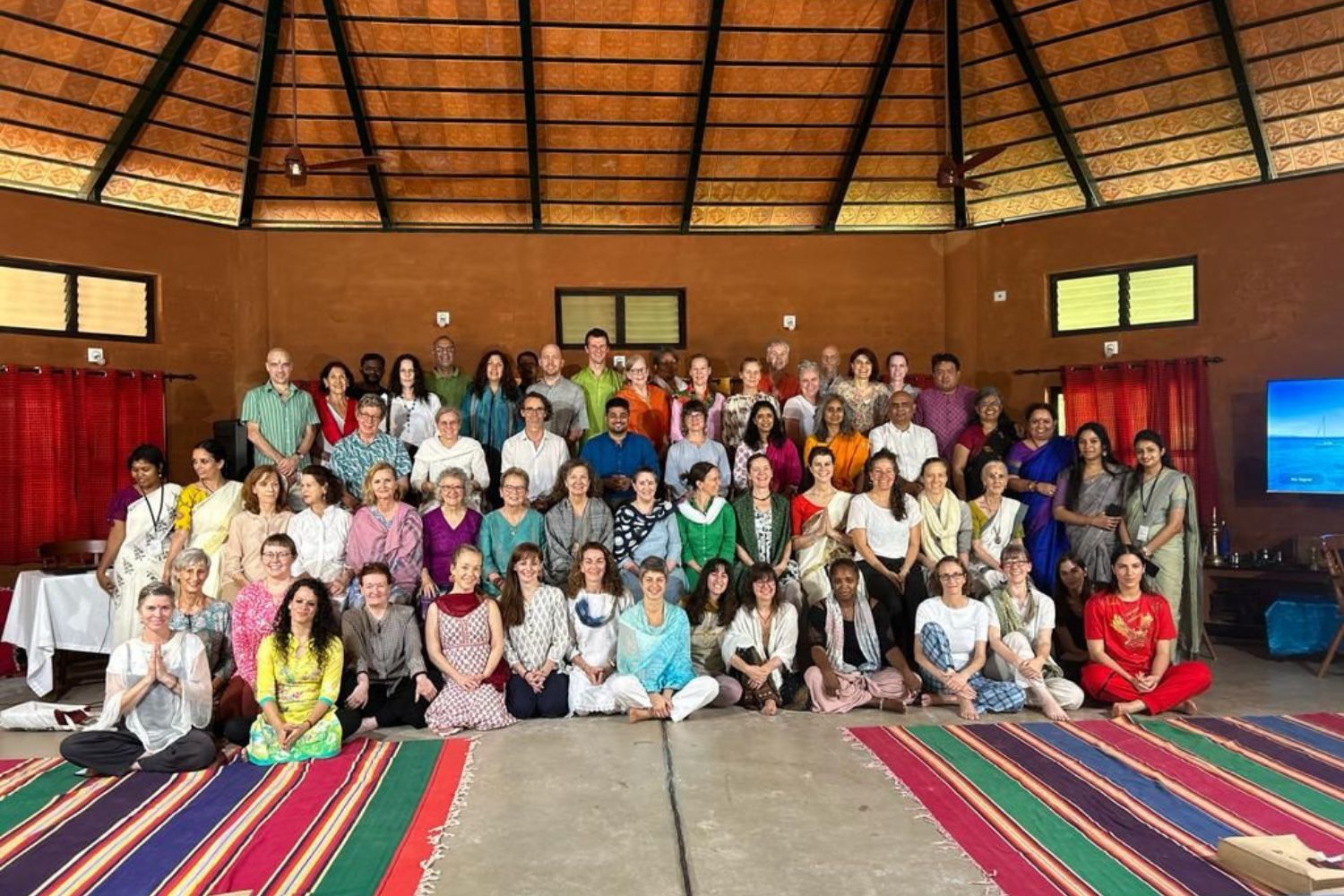Vedic Remedies for Modern Spiritual Crises
Identifying, Navigating & Resolving Emotional Disequilibrium Through the Lens of Daivavyapāśraya (Treatment of Spiritual Maladies)
Josh Schrei of The Emerald podcast, Fred Smith, Ramkumar, Claudia Welch, Emily Glaser & the rest of the Satsangam Team. Special Yoga practice with Scott Blossom.
While in the west we may consider spiritual crises to be a lack of fulfilment, meaningful living or a general feeling of being adrift, in India, spiritual maladies include curses, reaping of bad karmas and becoming possessed, among other disorders. We could write this Eastern view off as superstitious and backwards, until we look more closely at the utterly harmful or disruptive thoughts and beliefs that motivate many of our actions.
When we shine a closer light, we see how the Western and Eastern views relate, and how we are hard-pressed to find anyone not possessed by something, whether that be an idea, belief, substance, person, planet or personality. Bringing the unconscious into conscious awareness can be a step towards dispelling harm in these arenas. Traditionally, treatment includes the recitation of mantras, wearing roots and gems, auspicious acts, offerings, gifts, oblations, following religious precepts, atonement, fasting, invoking blessings, falling on (the feet of) the gods, pilgrimage, etc. Which of these treatments may we effectively include in the modern world? What is possession? What possesses us? Once we see ourselves as porous beings, how do we work with that?
Drs. Ramkumar & Welch–hosts of Satsangam’s Vedic Threads membership course– join with special guests Fred Smith, Josh Schrei, Scott Blossom, Emily Glaser and the rest of the Satsangam team, to explore these ideas.
Scott Blossom, whose thirty years of studying Haṭha Yoga included more than ten years studying semi-classical Indian dance forms based on the Dance of Shiva, leads us in movement, breathing, and meditation practices to help illuminate how therapeutic possession relates to somatic yoga practices.
Emily Glaser presents an overview of how each of the planets, in turn, possess us in various ways, according to the understanding of Jyotiṣa.
You might find this course interesting if you
- Are interested in Vedic Knowledge systems
- Find your thoughts, emotions or attention scattered, fragmented, or disturbed
- Have free-floating anxiety
- Are interested in what influences your thoughts, emotions, attention, experiences and perspectives
- Are curious what is meant by, “spiritual crisis” in Indian thought
- Are curious what Indian thought and knowledge systems and perspectives can offer as a way of making sense of and restoring balance to our internal and external experiences
- Are interested in how yoga practices work therapeutically with our sense of identity









